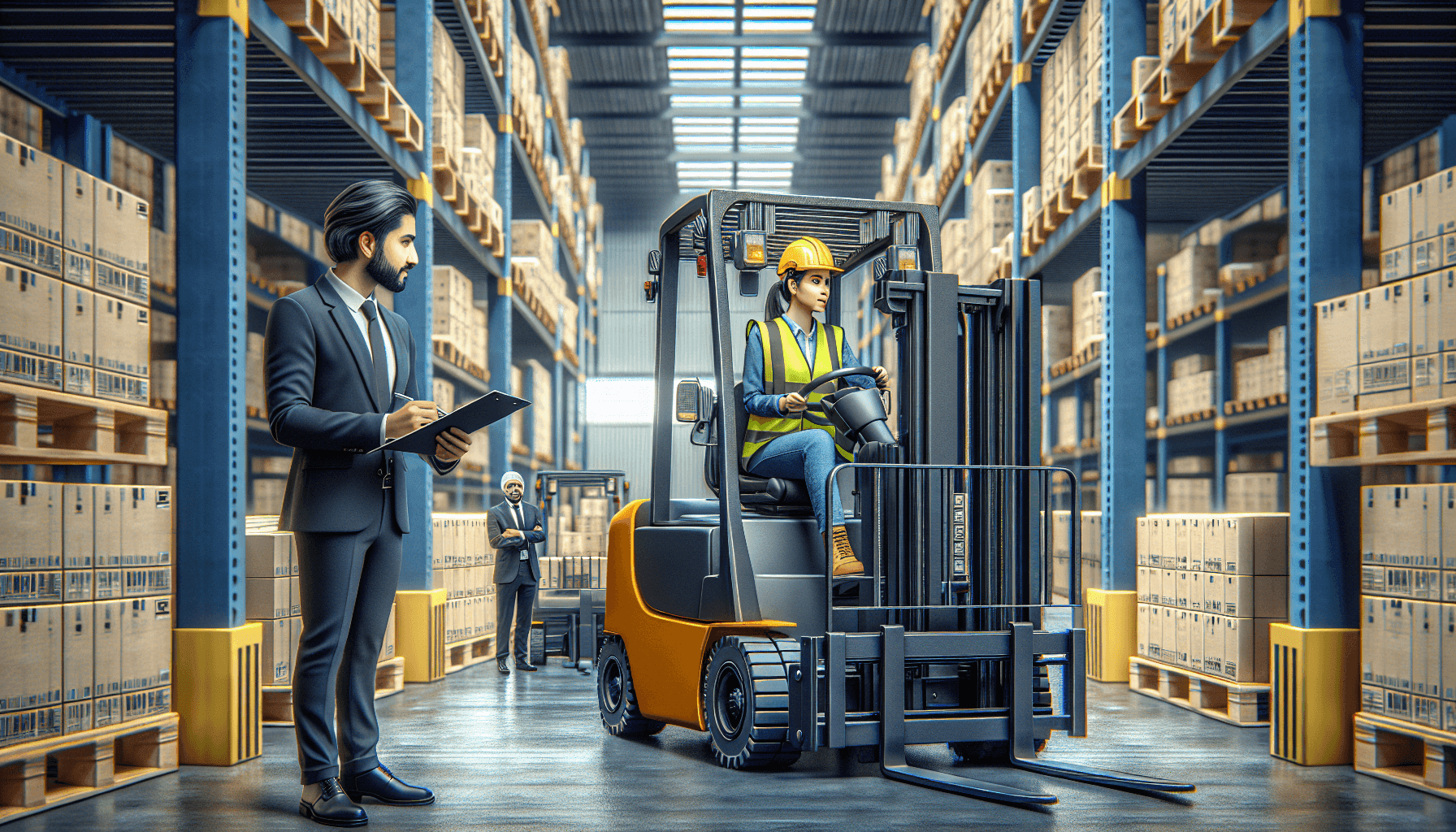In the fast-paced world of warehouse operations, safety should always be a top priority. One key aspect of ensuring a safe working environment is conducting regular forklift safety audits. Forklifts are vital tools in warehouse operations, but they can also pose serious risks if not properly maintained and operated.
The Role of Forklift Safety Audits
A forklift safety audit is a comprehensive evaluation of all aspects related to forklift operations within a warehouse. It involves assessing the condition of the forklifts, evaluating adherence to safety protocols, and identifying areas for improvement. The goal of these audits is to prevent accidents, minimize risks, and promote a safe and productive work environment.
There are several reasons why forklift safety audits are of utmost importance:
- Compliance with regulations: Forklift safety audits ensure that warehouse operations comply with local and federal regulations. This helps avoid penalties and legal issues that may arise from non-compliance.
- Reduced accident risks: Forklift accidents can result in serious injuries, property damage, and even fatalities. Regular audits help identify potential hazards and take necessary measures to mitigate risks, reducing the likelihood of accidents.
- Improved productivity: When forklift operators and warehouse staff feel safe in their working environment, they tend to be more productive. Conducting safety audits boosts morale and increases overall efficiency.
- Cost savings: Preventing accidents through safety audits can result in significant cost savings. Avoiding injuries, property damage, equipment downtime, and insurance claims not only saves money but also ensures smooth warehouse operations.
During a forklift safety audit, various components are evaluated:
- Equipment condition: Auditors check the overall condition of forklifts, ensuring that all safety features are functional. This includes inspection of brakes, lights, horns, seat belts, and any other critical components that contribute to safe operation.
- Operator training and certification: Audits assess whether forklift operators have undergone proper training and possess valid certifications. This helps ensure that only qualified individuals operate the forklifts.
- Adherence to safety procedures: The audit evaluates if warehouse staff follows established safety procedures, such as wearing appropriate personal protective equipment (PPE), maintaining clear pathways, and avoiding overloading the forklifts.
- Maintenance and inspections: Regular maintenance and inspections are crucial for forklift safety. Auditors review maintenance records, inspection logs, and documentation to ensure that forklifts are regularly serviced and in compliance with manufacturer guidelines.
To ensure effective forklift safety audits, it is recommended to engage the services of a reputable warehouse optimization solutions provider like HCO Innovations. They specialize in enhancing safety, productivity, efficiency, and cost-effectiveness within warehouse operations.
Additionally, it is crucial for warehouse managers to consistently prioritize safety by implementing the following practices:
- Regular training and refresher courses: Provide ongoing training for forklift operators to reinforce safety protocols and update their knowledge about industry best practices.
- Establish clear safety policies: Develop comprehensive safety policies and procedures specific to forklift operations. Communicate these policies to all warehouse staff and enforce strict adherence.
- Encourage reporting of safety concerns: Create an open and supportive environment where employees feel comfortable reporting safety concerns or near misses. This information can help identify potential issues and prevent accidents.
- Regular inspections: Conduct routine inspections of forklifts and warehouse areas to identify any potential hazards or maintenance issues. Addressing these concerns promptly can prevent accidents before they occur.
- Invest in proper equipment and maintenance: Provide well-maintained forklifts with up-to-date safety features. Regularly service and inspect the forklifts to ensure they are in optimal condition.
In conclusion, forklift safety audits play a vital role in maintaining a safe working environment in warehouses. By complying with regulations, reducing accident risks, improving productivity, and saving costs, these audits contribute to overall operational efficiency and employee well-being. To ensure comprehensive audits and expert guidance, partnering with a warehouse optimization solutions provider like HCO Innovations can make a significant difference. Remember, safety should always be a priority, and investing in regular audits and safety measures will ultimately benefit both the workforce and the organization.

